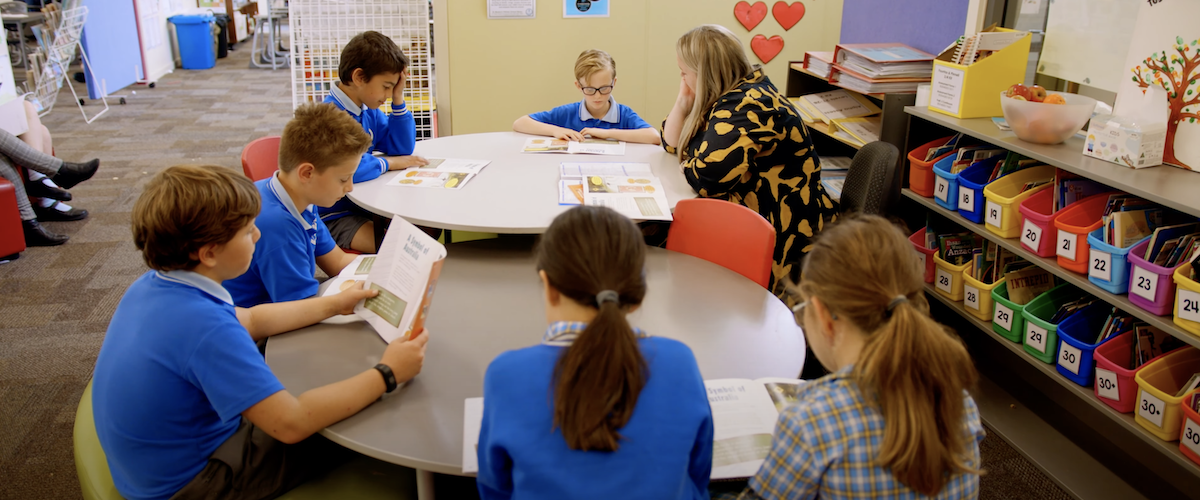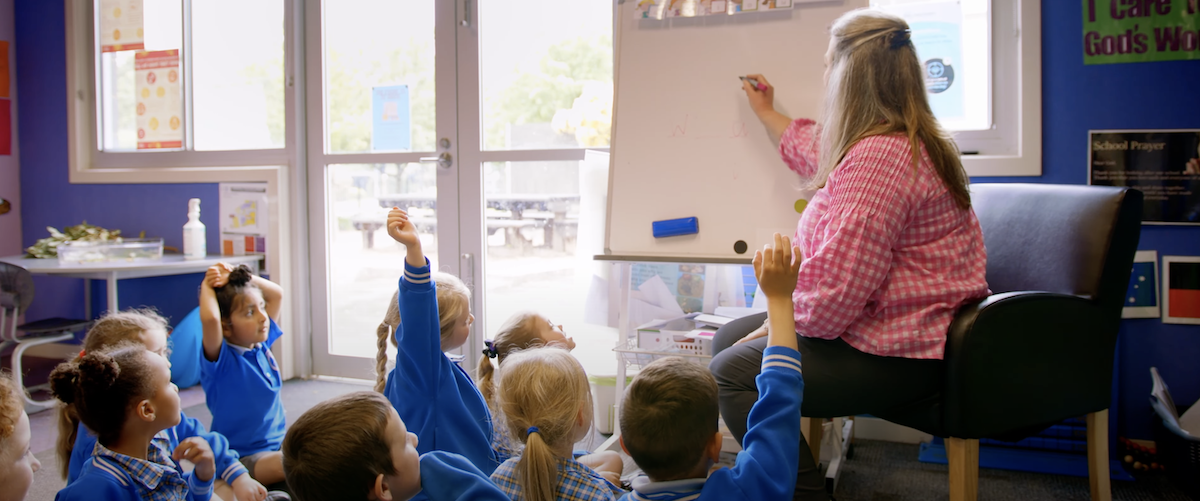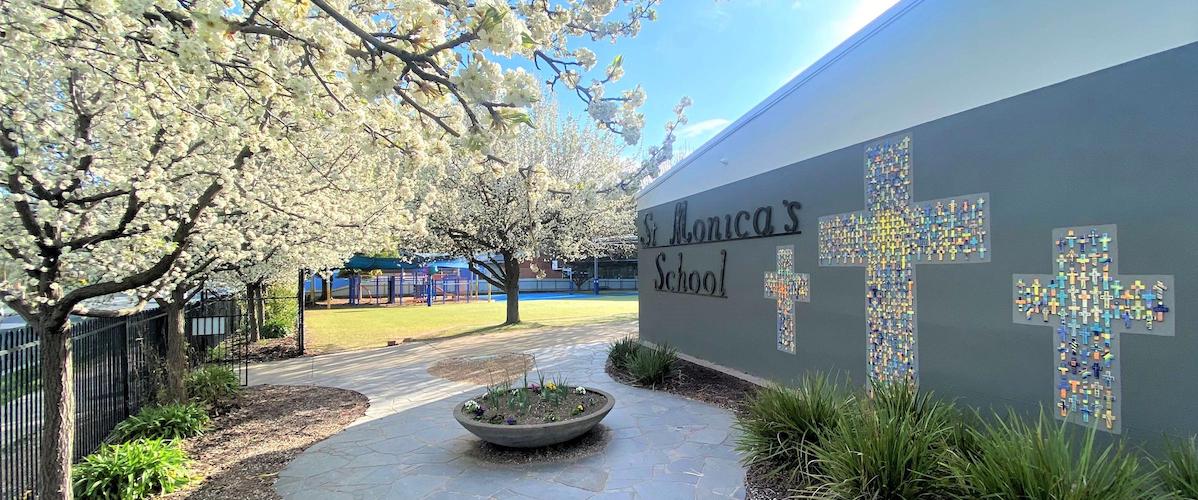RATIONALE:
All children have a right to feel safe and to be safe. As teachers, we have a legal and moral responsibility to respond to serious incidences involving abuse and neglect of the children with whom we have contact, and to report instances that involve physical, emotional, psychological, sexual abuse or neglect.
The dignity of the human person, who is created in the image and likeness of God, is the foundation of Catholic Social Teaching. This Catholic anthropology leads us to afford all people, but especially children, young people and the most vulnerable, the highest respect. Within this context, effective Catholic schools provide a safe, supportive and secure environment that promotes respect and care and values diversity. The mental, physical, spiritual and emotional wellbeing of children and young people are essential preconditions for successful learning. These qualities cannot be developed for individuals in isolation from the health and wellbeing of the school community as a whole.
Saint Monica’s is committed to the creation of a safe, just and respectful environment that supports wellness for all members of the school community. In this, there is a moral obligation and shared responsibility to protect the most vulnerable members of the community.
Saint Monica’s believes that, while protecting children and young people against sexual abuse is a community wide responsibility, schools have particular moral and legal responsibilities to ensure children and young people are safe in their care and to actively and intentionally work to eliminate all forms of abusive behaviours towards children. There are also particular moral and legal obligations for those in authority to prevent, reduce and minimise child abuse and exploitation in all forms.
AIMS:
This policy applies to the whole school community in supporting safe environments for all children and young people.
The obligations of ‘failure to disclose’ are separate from, and in addition to, Mandatory Reporting obligations.
Its purpose concerns the new criminal offence under the Victorian Crimes Act, commencing 27 October 2014, ‘failure to disclose, which provides that:
- all adults who form a reasonable belief that a sexual offence has been committed by an adult against a child under 16 has an obligation to report that information to police. Failure to disclose the information to police is a criminal offence.
- an adult will not be guilty of the offence if they have a reasonable excuse for not disclosing the information. A reasonable excuse includes:
- fear for safety
- where the information has already been disclosed.
Note: It is a reasonable excuse to not disclose where a person believes on reasonable grounds that the information has already been disclosed to police and they have no further information to report; for example, where the person has already made a report under the mandatory reporting obligation specified in the Children, Youth and Families Act 2005.
This obligation requires teachers, doctors and other professionals to report concerns about child welfare to child protection authorities within the Department of Health and Human Services (DHHS).
Under the existing mandatory reporting system, DHHS already passes on all allegations of child sexual abuse to police, so it will be a reasonable excuse for not reporting to police if a person has made a report to DHHS or reasonably believes a report has been made to DHHS. This ensures that people are not required to make multiple reports to different agencies.
A person does not have a reasonable excuse for failing to disclose sexual abuse if they are only concerned for the perceived interests of the perpetrator or any organisation. ‘Perceived interests’ includes reputation, legal liability or financial status.
KEY PRINCIPLES:
A safe environment is required to protect children and young people from harm and to prevent staff from abusing their position of authority and trust.
The child and young person's ongoing safety and wellbeing must be the primary focus of all decision making.
School leaders and staff must be fully self-aware of, and comply with, their professional obligations and responsibilities.
The commitment to protecting children is embedded in the organisation’s culture and responsibility for taking action is understood and accepted at all levels of the organisation.
DEFINITIONS:
Child and Young Person
For the purposes of this offence, a child is a person under the age of 16 years. A young person is any person who comes under or may come under the care, supervision or authority of the school.
Reasonable belief
A ‘reasonable belief’ is formed if a reasonable person in the same position would have formed the belief on the same grounds. A ‘reasonable belief’ is not the same as having proof.
Sexual abuse
Sexual abuse occurs when a person uses power or authority over a child to involve the child in sexual activity and the child's parent or caregiver has not protected the child. Physical force is sometimes involved. Child sexual abuse involves a wide range of sexual activity, including physical activity and/or exposure of the child to pornography.
IMPLEMENTATION:
This policy applies to the whole school community in supporting safe environments for all children and young people.
- It applies to all adults in the school community to ensure they understand this responsibility (distinct from that of Mandatory Reporting) in protecting the safety and wellbeing of children and young people under the age of 16 in accordance with the Crimes Act 1958 (Vic).
- This policy and its requirements will be communicated annually to all staff and the wider school community
- This policy and its requirements will be communicated to new staff during induction
- School staff will be trained in personal safety and the identification of possible sexual abuse
- Prompt and full responses to any allegations will be undertaken promptly, with well documented records retained securely and confidentially
RELATED DOCUMENTATION:
This policy should be read in conjunction with the other policies and procedures of Saint Monica’s concerned with Child Safety and Pastoral Wellbeing:
- Charter of Sandhurst School Improvement
- Child Protection and Safety Policy
- Child Protection – Mandatory Reporting Policy
- Child Protection – Failure to Protect Policy
- Child Protection – Grooming Policy
- Child Protection – Working with Children Policy
7.0 REFERENCES
- Crimes Amendment (Protection of Children) Act 2014, online, http://www.austlii.edu.au/au/legis/vic/num_act/caoca201436o2014417
- Children, Youth and Families Act (Vic) 2005
- DEECD and DHS 2010, Protecting the Safety and Wellbeing of Children and Young People, A joint protocol of the Department of Human Services Child Protection, Department of Education and Early Childhood Development, Licensed Children’s Services and Victorian Schools.
- Victorian Parliamentary Inquiry into the Handling of Child Sexual Abuse by Religious and Other Non-Government Organisations, Final Report, Betrayal of Trust, November 2013.
- Integrity in the Service of the Church, online,
https://www.catholic.org.au/documents/1345-integrity-in-service-of-the-church-1
REVIEW:
This policy is to be reviewed at least every three years.
Initially Ratified: 2016
Next Review to be completed by: 2021





